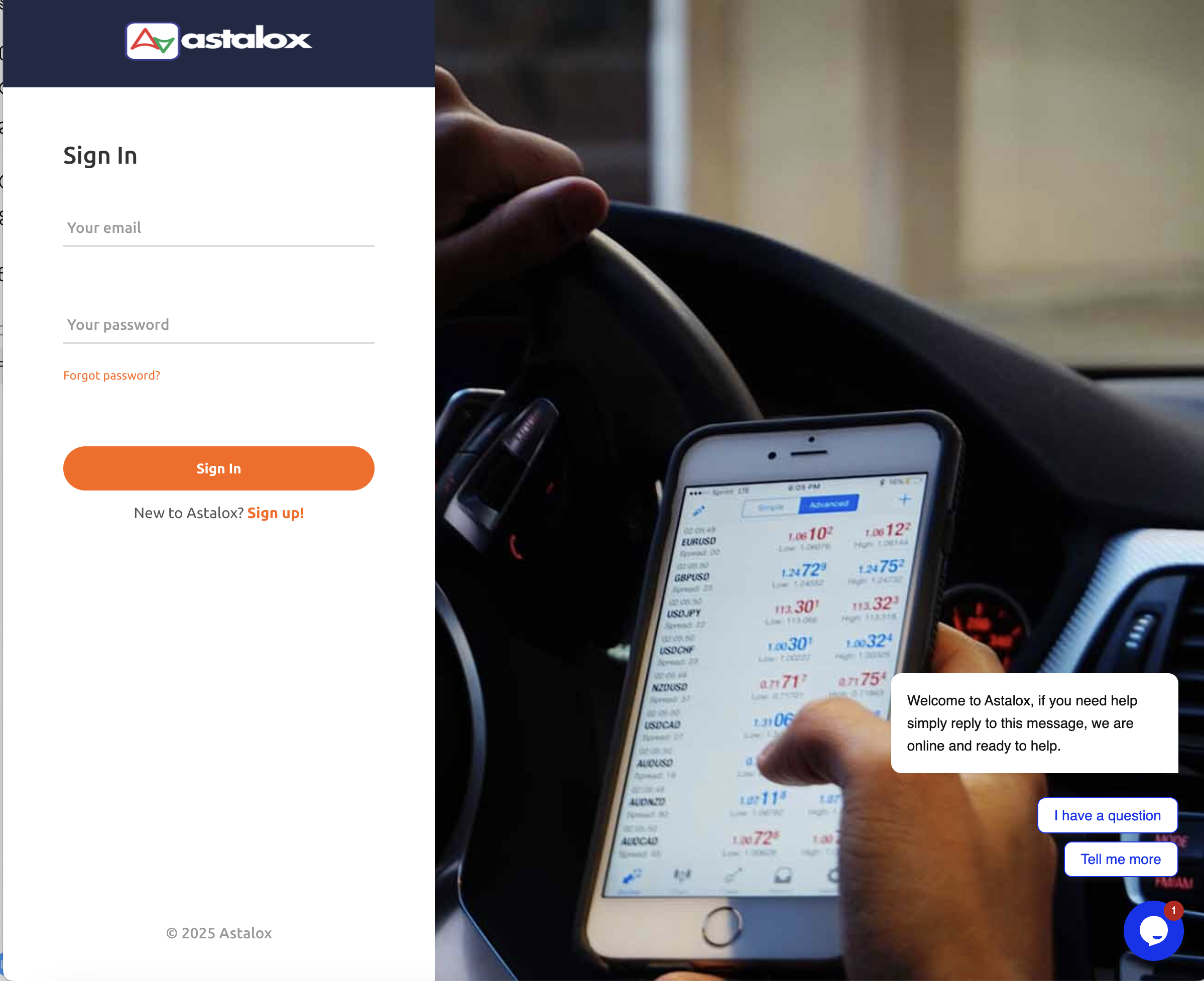CrestCredits Scam Review – Why It Seems Highly Suspicious
CrestCredits (operating via crestcredits.com and crestcredits.info) presents itself as a financial / lending / investment-type service. But although the site has active pages and marketing, a number of technical, regulatory, and user feedback issues raise serious concerns. Below is a breakdown of what CrestCredits claims, what doesn’t add up, what people report, and why caution is strongly recommended.
What CrestCredits Claims & What It Promotes
From what is visible on the site and in its marketing:
-
CrestCredits claims to offer credit or financial services, possibly investment or lending options.
-
It projects a professional facade: fancy design, promises of modern banking or credit sophistication.
-
It has contact details that suggest a UK postal address, and it appeals to a broad audience with “credits,” “future of banking,” etc. language.
-
It tries to emphasize features like “easy access,” “convenience,” “professional financial services,” possibly “returns” or “credit boosting.”
These claims are the kind that potentially attract people who want fast access to finance or better returns. But there are numerous warning signs that these marketing messages are not matched by credible backing or regulatory oversight.
Regulatory Status & Official Warnings
One of the most critical issues with CrestCredits is regulation—or the lack thereof:
-
CrestCredits has been formally warned by the UK’s financial regulator (FCA) as an “unauthorised firm / provider.” The FCA explicitly states that CrestCredits / crestcredits.info is not authorised to provide financial services in the UK.
-
Because CrestCredits is not licensed, it means users in the UK are not protected under important safeguards—there is no recourse via UK regulatory bodies if something goes wrong.
-
The fact that official regulators are publicly warning consumers about CrestCredits is a major red flag. It signals that authorities have found enough concern in their practices to issue alerts.
Domain & Ownership Transparency
Another set of concerns involves how CrestCredits structures its domain, ownership info, and website infrastructure:
-
WHOIS information for the site is masked—ownership is hidden behind privacy protection services. That means it’s not easy to determine who legally owns, runs, or is responsible for the operation.
-
The domain is relatively new. Sites that have been recently set up, especially in the financial/investment/credit space, have less time to build trust, and are more likely to exhibit dubious behavior.
-
The site is hosted on servers shared with other websites, some of which have low trust scores or are flagged for suspicious behavior. Shared infrastructure increases risk because compromise or misuse by one site can affect others.
These technical factors on their own don’t conclusively prove wrongdoing—but when combined with regulatory warnings and user complaints, they strongly amplify risk.
Trust & Reputation Assessments
Independent website evaluation tools and fraud detection sites report very negative findings for CrestCredits:
-
On sites that rate financial, investment, or credit service providers, CrestCredits tends to score very low. One ranking system gives it a score just above 2 out of 100—an extremely poor rating.
-
CrestCredits is flagged by multiple risk-assessment tools for being “very suspect,” “dubious,” “very new,” or “suspicious.” Terms like “very low trust,” “high-risk content,” and “hidden ownership” appear repeatedly.
-
Many reviews or user comment threads show polarized feedback—some very glowing, others very negative. Such extremes often suggest manipulated or fake reviews mixed with real complaints.
User Feedback & Complaint Patterns
What people are saying about CrestCredits adds up to a concerning pattern:
-
Numerous users claim their withdrawal or refund requests have been ignored or not honored. People say they made payments or submitted applications, but did not receive promised returns or access.
-
Some complain that customer support becomes unresponsive once money is involved, particularly when withdrawal or credit claims are made. Early communications may seem friendly, but later stages are described as opaque, evasive, or blocked.
-
Some reports say CrestCredits claims to have processed withdrawals or credit approvals, but the funds never actually arrive. Others say that new conditions or fees are introduced late in the process, after a user has already committed.
-
Several complain about misleading promotional materials—that what is advertised (quick credit, returns, easy terms) is not reflected in reality. Hidden fees, vague conditions, or promises of support that never materialize are common themes.
What These Risks Could Mean in Practice
Given all the warnings and complaints, people using CrestCredits may face the following:
-
Loss of money or credit value—if you “invest,” deposit, or pay fees believing in promised returns or credit, and then are not able to access funds or credit.
-
Time wasted and frustration from failed withdrawal attempts or credit approvals.
-
Difficulty contacting customer service or obtaining clear documentation of what was promised vs. what was delivered.
-
Exposure of personal or financial data if infrastructure is weak or privacy is poorly handled.
-
Being misled by promotional promises that don’t align with policy fine print or actual practice.
Comparison With Legitimate Financial Services
To understand how far CrestCredits diverges from what legitimate credit / lending / investment platforms do, consider these differences:
-
Legit platforms are openly regulated and clearly show their license numbers, regulatory body, and company registration details. CrestCredits does not.
-
Trustworthy services have transparent fee structures, unambiguous withdrawal or repayment policies, and accessible customer support. CrestCredits appears to have vague or shifting conditions.
-
Real financial service providers don’t typically hide domain ownership, or use aggressive marketing that implies returns without explaining risk. CrestCredits appears to use some marketing techniques that are characteristic of risk-oriented pitches.
Why Many Consider CrestCredits Potentially a Scam
When combining the regulatory warnings, technical issues, user complaints, and lack of transparency, many analysts and users believe CrestCredits is more than just a “questionable” service—it may be operating in scam-like fashion:
-
Regulatory bodies are explicitly warning people not to deal with or trust CrestCredits.
-
The infrastructure and domain setup suggest concealment and lack of accountability.
-
Multiple different risk-assessment services agree: CrestCredits ranks among the low trust, high-risk category.
-
Complaints are consistent in theme: unfulfilled payments, lack of clarity, promises not kept.
Final Thoughts & What to Watch Out For
Given all this, here is a summary of what to keep in mind regarding CrestCredits:
-
The risk level is high. Many warning signs suggest you should avoid depositing funds or entering into financial contracts with this platform.
-
If you do engage for any small test, demand full documentation, keep proof of promises, record all communications.
-
Always verify whether a firm is regulated where you are. If it’s not, there’s little legal protection or guarantee.
-
Be skeptical of overly promising marketing—fast returns, easy credit, “future bank” style claims often overstate reality.
In conclusion, CrestCredits exhibits enough red flags, official warnings, and user complaints that it fits many patterns of scam or deceptive financial service providers. Exercising caution, keeping funds protected, and choosing regulated alternatives is highly advisable when dealing with platforms like this.
-
Report CrestCredits and Recover Your Funds
If you have fallen victim to CrestCredits and lost money, it is crucial to take immediate action. We recommend Report the scam to BOREOAKLTD.COM , a reputable platform dedicated to assisting victims in recovering their stolen funds. The sooner you act, the greater your chances of reclaiming your money and holding these fraudsters accountable.
Scam brokers like CrestCredits persistently target unsuspecting investors. To safeguard yourself and others from financial fraud, stay informed, avoid unregulated platforms, and report scams to protect. Your vigilance can make a difference in the fight against financial deception.





